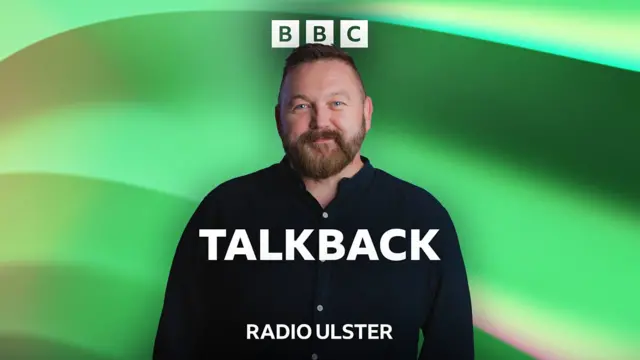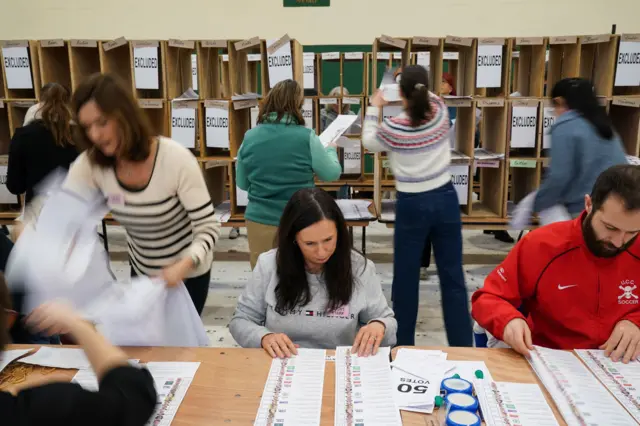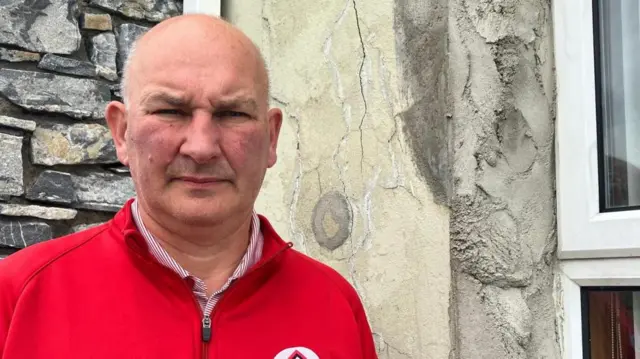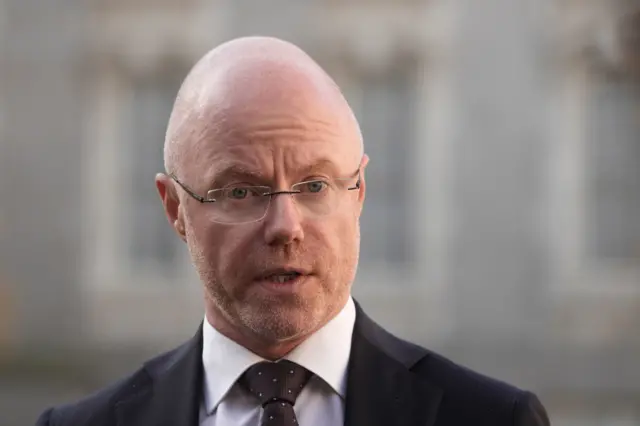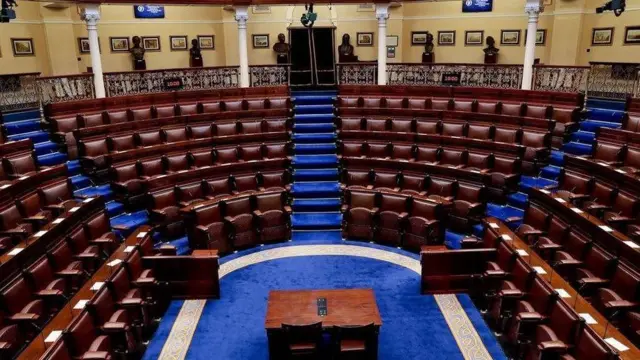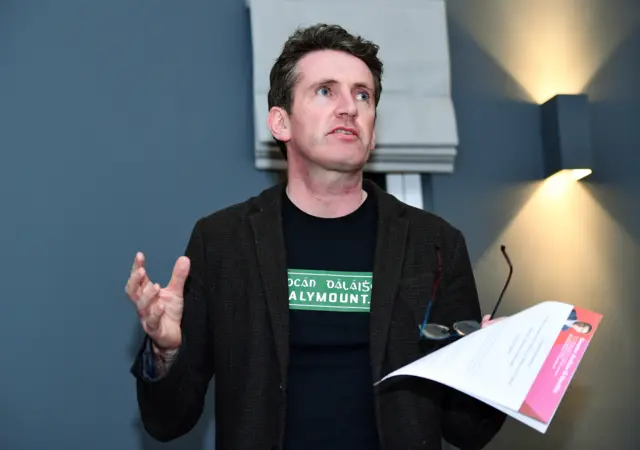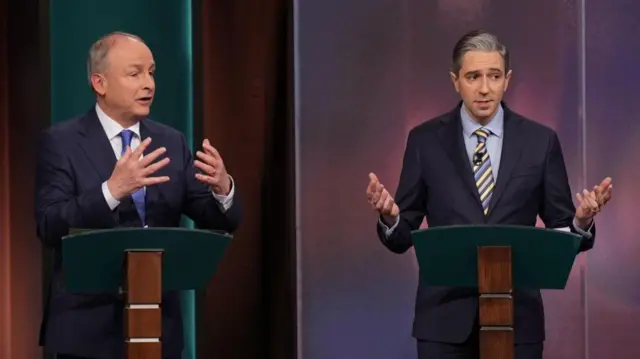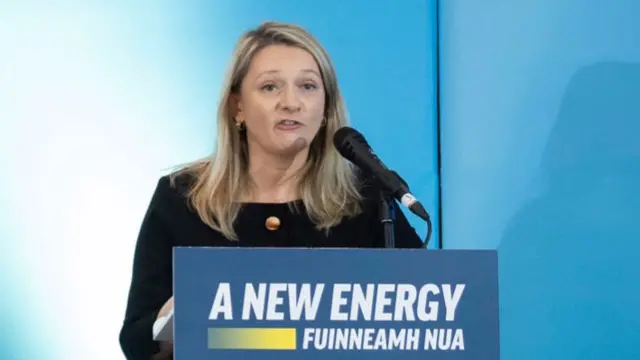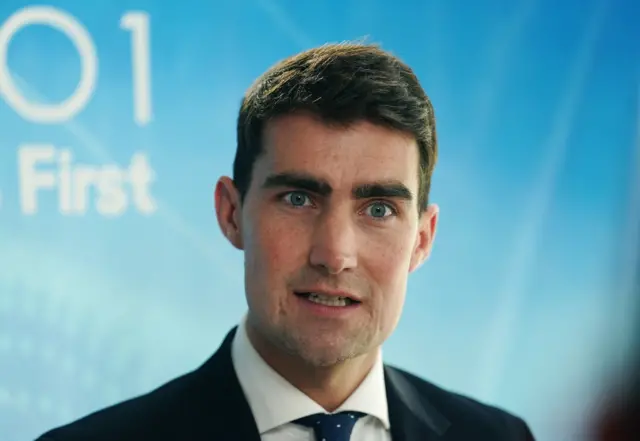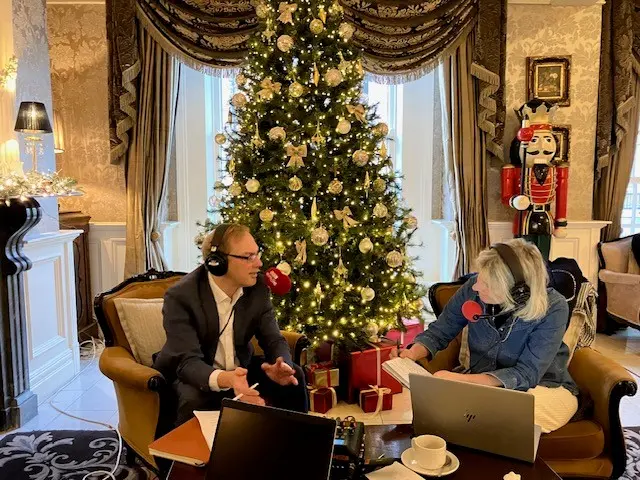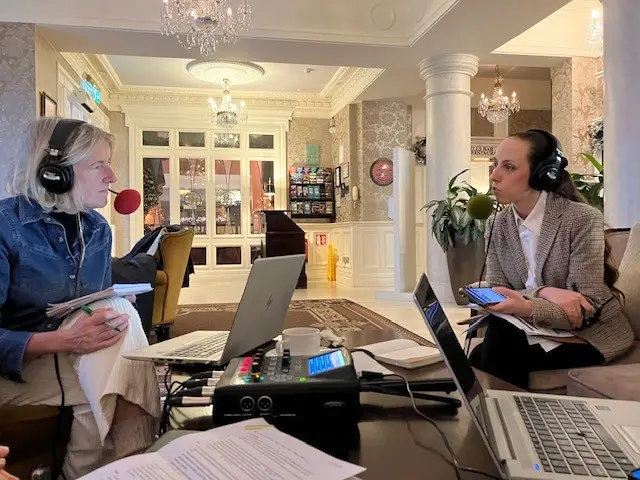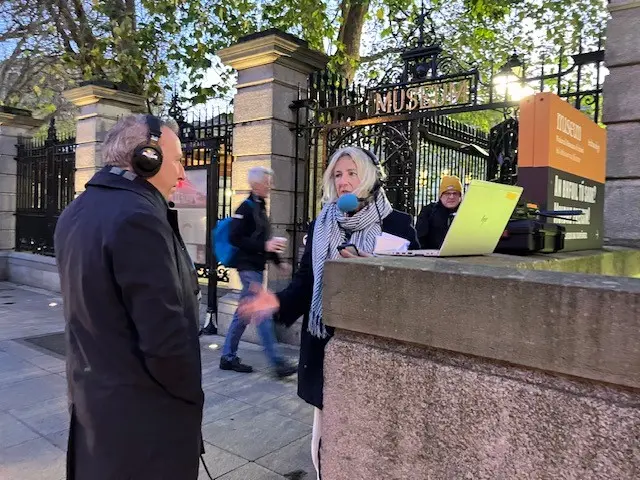Coalition talks 'already happening'published at 12:23 GMT 2 December 2024
With just 12 seats left to be declared, the Irish Times’ political correspondent Jennifer Bray says talks about the new make-up of the Irish government will already be taking place.
“If you listen to any of the Fianna Fáil or Fine Gael TDs [members of the Irish parliament] on the airwaves they are all very cranky this morning - they probably haven’t had enough sleep over the weekend or are very reluctant to get into coalition-ology,” she tells BBC Radio Ulster’s Talkback programme.
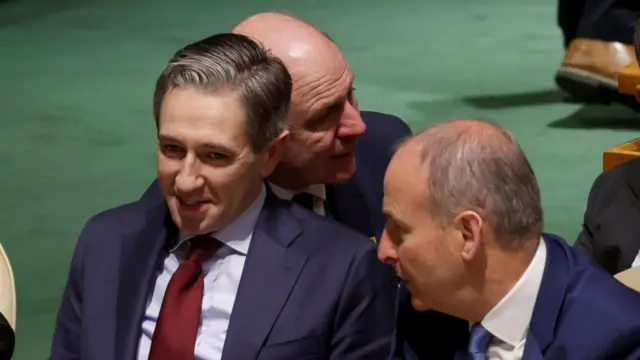 Image source, PA Media
Image source, PA MediaSimon Harris, from Fine Gael and the most recent taoiseach, sitting beside another former PM Micheál Martin from Fianna Fáil
“But be assured those conversations are happening,” she says.
The clearest route to power, she adds, is for Fianna Fáil or Fine Gael to band together, possibly with the addition of some independents.
But, she says, the dynamic between the two big parties now is different, with Fianna Fáil having around 10 TDs more than Fine Gael when in 2020 it was ”even stevens” in terms of seats.
